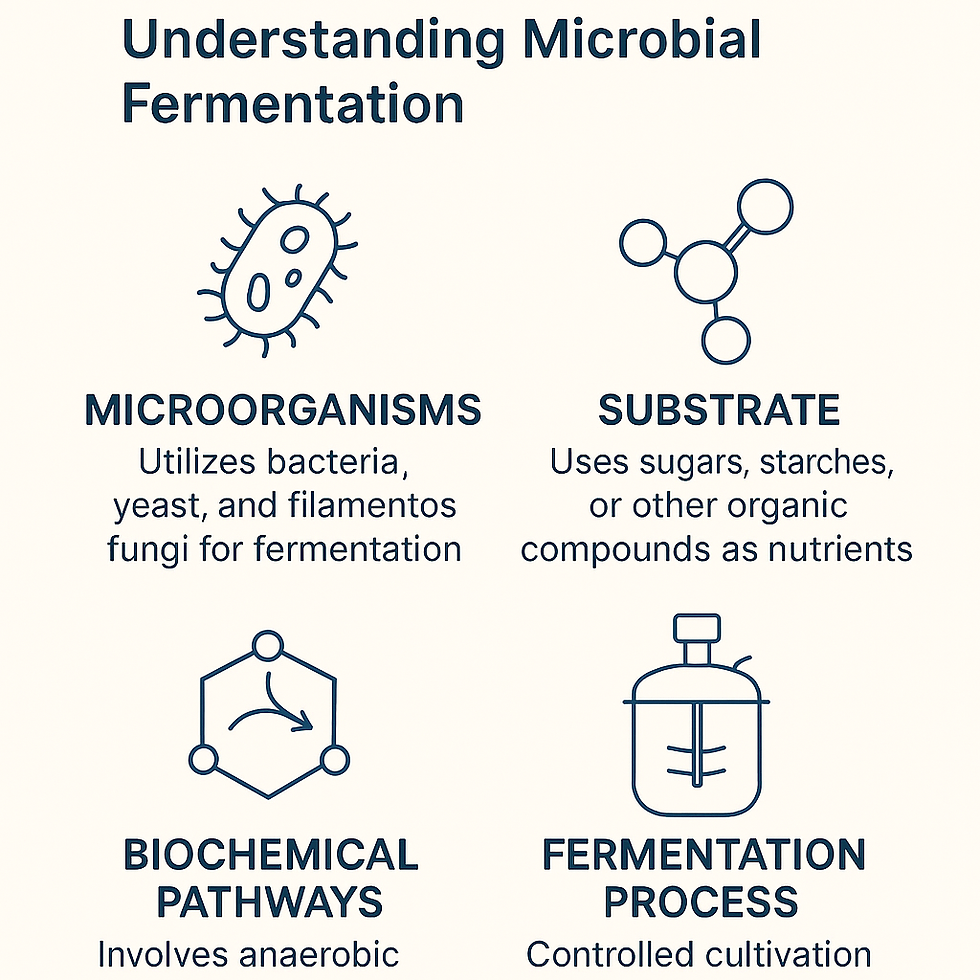Role of Fermenters in Food Preservation: Extending Shelf Life Naturally
- Arun Luthra
- Sep 10, 2024
- 2 min read
In today’s world, where consumers are increasingly conscious of what goes into their food, the demand for natural preservation methods is on the rise. The challenge for food producers is to maintain the safety and quality of their products without relying on synthetic additives. This is where fermenters play a crucial role, enabling the production of natural preservatives that can extend the shelf life of foods in a safe and sustainable way.
Lactic Acid: Nature’s Preservative
One of the most well-known natural preservatives produced through fermentation is lactic acid. Found in a variety of fermented foods like yogurt, sauerkraut, and pickles, lactic acid is a by-product of the fermentation process carried out by lactic acid bacteria. These bacteria convert sugars into lactic acid under controlled conditions in fermenters.
Lactic acid has powerful antimicrobial properties, which inhibit the growth of spoilage-causing bacteria and pathogens. This makes it an effective natural preservative, capable of extending the shelf life of perishable foods without altering their taste or nutritional value. Unlike synthetic preservatives, lactic acid is derived from natural sources, making it an attractive option for clean-label products.
How Fermenters Facilitate Natural Preservation
Fermenters are specialized bioreactors designed to create optimal conditions for the growth and activity of microorganisms like lactic acid bacteria. By precisely controlling factors such as temperature, pH, and nutrient supply, fermenters ensure that these bacteria can efficiently convert sugars into lactic acid. This process is not only scalable but also consistent, allowing food producers to achieve high levels of lactic acid production with each batch.
The use of fermenters in food preservation is not limited to lactic acid production. Other natural preservatives, such as acetic acid (vinegar) and propionic acid, can also be produced through fermentation. These acids offer similar preservative benefits, each with its own unique flavor profile and application in different types of foods.
Sustainability and Consumer Appeal
The growing consumer demand for natural and minimally processed foods has made the use of fermenters in food preservation even more relevant. Foods preserved with natural acids are often perceived as healthier and more environmentally friendly, which aligns with the values of today’s consumers.
Additionally, the fermentation process itself is sustainable. It often requires fewer resources and generates less waste compared to traditional preservation methods. For food producers, this not only reduces environmental impact but can also lead to cost savings in the long term.
Conclusion: A Future of Natural Preservation
As the food industry continues to evolve, the role of fermenters in natural preservation will only become more significant. By enabling the production of natural preservatives like lactic acid, fermenters help food producers meet the demand for clean-label products while ensuring safety and shelf life.
At Amerging Technologies, we are committed to advancing the use of fermentation technology in food preservation. Our advanced fermenters are designed to optimize the production of natural preservatives, helping food brands offer products that are both safe and appealing to today’s health-conscious consumers.




Comments